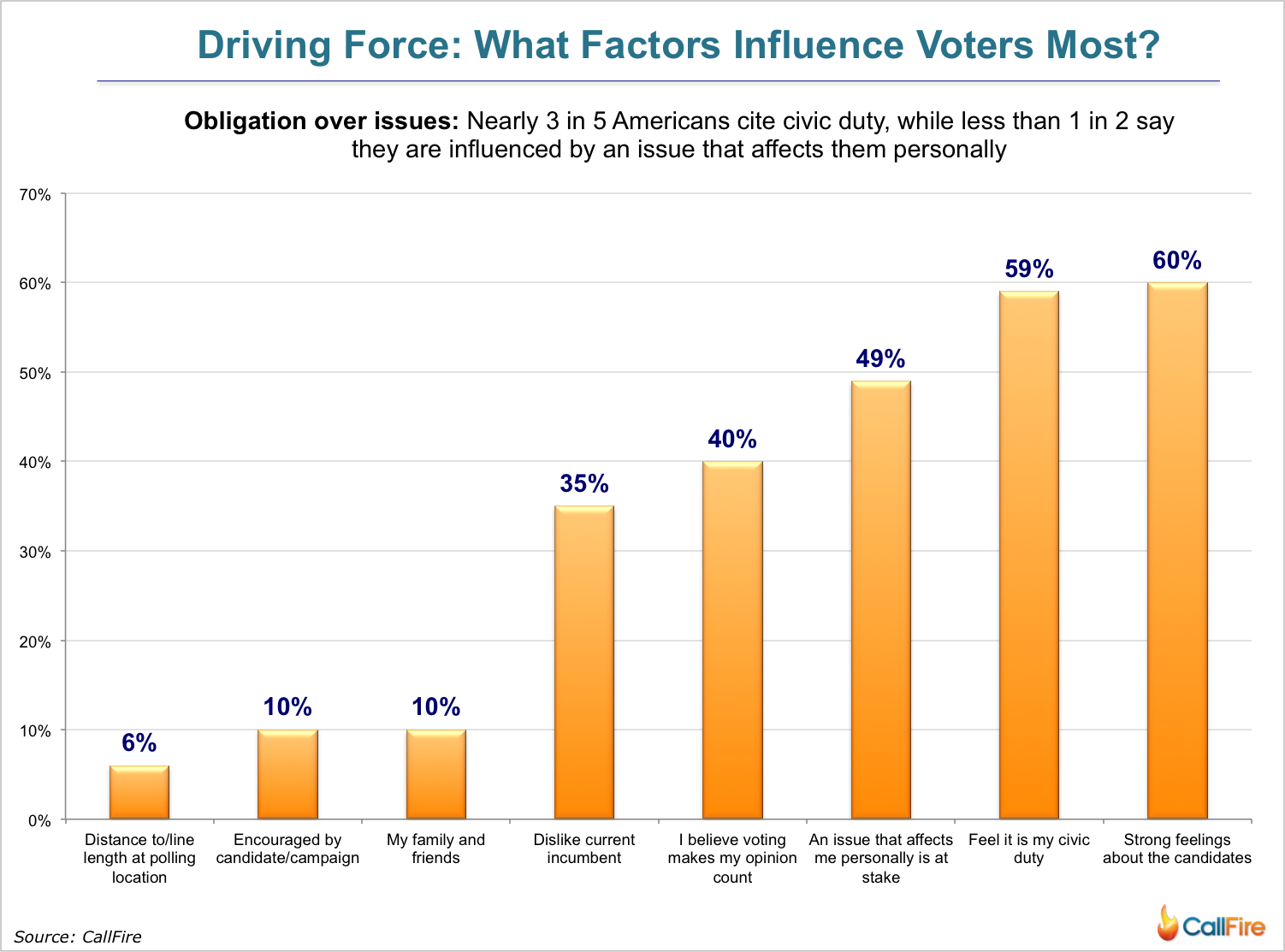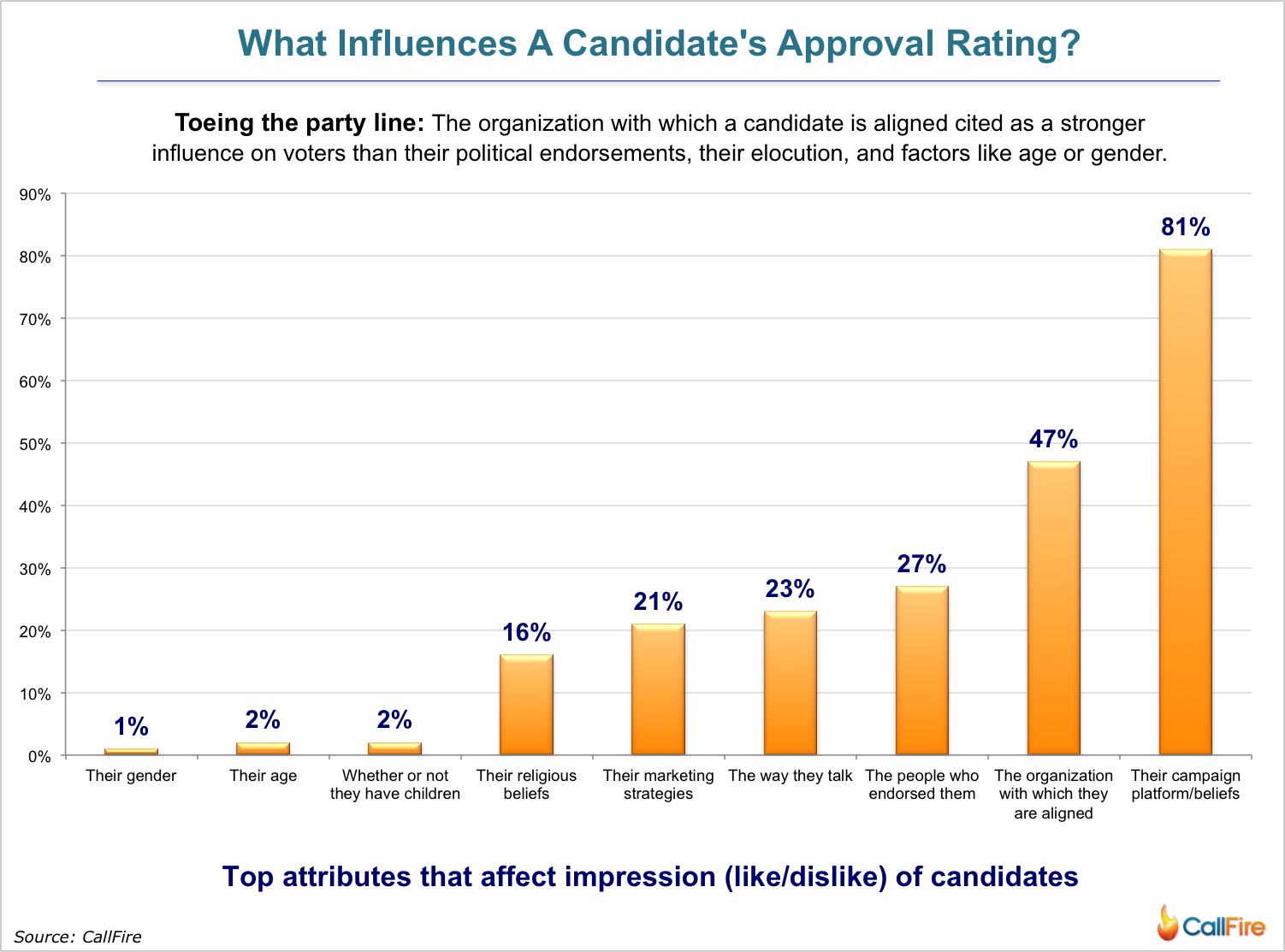Each political season, a variety of agencies initiate surveys and polls to gauge public opinion regarding how and why people vote. This season, CallFire sought to better understand political communication trends by administering a survey of our own. Seeking to understand how voters prefer to be contacted and what compels them to vote, CallFire’s polls produced some interesting results.
Preferred Ways to Reach Voters
While the majority of Americans (54%) say they think social media is the best way for a political campaign to reach voters, less than one in four (24%) say they have ever actually been contacted by a campaign through social platforms. Nearly one in five people (19%) said text is the best way to reach voters, but only 10% have been contacted via SMS. This indicates an opportunity for candidates to utilize social tools and mobile communication to engage with constituents.What Factors Influence Voters Most?
The single factor that most influences voters is their feeling about a particular candidate. After that, many are more influenced by a sense of duty and obligation than they are by particular issues. Nearly three in five Americans (59%) say a feeling of civic duty influences their decision to show up and vote while less than one in two (49%) said they do so because of an issue that affects them personally.
What Influences a Candidate's Approval Rating?
Eighty-one percent of voters base their approval of a candidate on his beliefs and political platform. This is interesting, considering the statistics above, which indicate that more vote out of a sense of obligation than with respect to particular issues. Toeing the party line seems to be the strongest factor impacting a candidate’s approval ratings, with 47% of voters saying the party with which the candidate is aligned is one of the top attributes impacting their impression of the candidate, over their political backers (27%), their elocution (23%), and factors like age (2%) and gender (1%).
Wrap Up
Since voters indicate that they are swayed by their feelings about the party and/or candidate, it makes sense that many of them embrace engagement via more personal mediums. Social media and SMS texting are comparatively intimate methods of communicating, yet it seems that most political campaigns have yet to catch up to this growing demand. It would serve both candidates and voters for political organizers to relay information through social networks and mobile technologies. Letting voters know who the candidate is and what s/he stands for — and doing so through preferred channels — is prone to improve voter turnout.
Note: The survey was conducted between October 15-20 on the CallFire platform and there were just under 500 respondents, adults ages 18 and older.